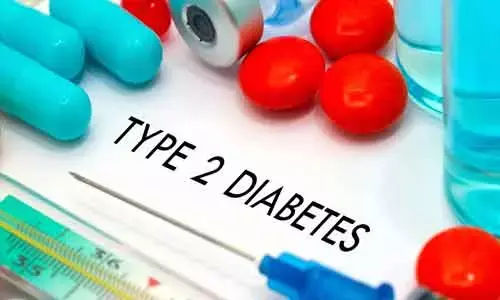- Home
- Medical news & Guidelines
- Anesthesiology
- Cardiology and CTVS
- Critical Care
- Dentistry
- Dermatology
- Diabetes and Endocrinology
- ENT
- Gastroenterology
- Medicine
- Nephrology
- Neurology
- Obstretics-Gynaecology
- Oncology
- Ophthalmology
- Orthopaedics
- Pediatrics-Neonatology
- Psychiatry
- Pulmonology
- Radiology
- Surgery
- Urology
- Laboratory Medicine
- Diet
- Nursing
- Paramedical
- Physiotherapy
- Health news
- Fact Check
- Bone Health Fact Check
- Brain Health Fact Check
- Cancer Related Fact Check
- Child Care Fact Check
- Dental and oral health fact check
- Diabetes and metabolic health fact check
- Diet and Nutrition Fact Check
- Eye and ENT Care Fact Check
- Fitness fact check
- Gut health fact check
- Heart health fact check
- Kidney health fact check
- Medical education fact check
- Men's health fact check
- Respiratory fact check
- Skin and hair care fact check
- Vaccine and Immunization fact check
- Women's health fact check
- AYUSH
- State News
- Andaman and Nicobar Islands
- Andhra Pradesh
- Arunachal Pradesh
- Assam
- Bihar
- Chandigarh
- Chattisgarh
- Dadra and Nagar Haveli
- Daman and Diu
- Delhi
- Goa
- Gujarat
- Haryana
- Himachal Pradesh
- Jammu & Kashmir
- Jharkhand
- Karnataka
- Kerala
- Ladakh
- Lakshadweep
- Madhya Pradesh
- Maharashtra
- Manipur
- Meghalaya
- Mizoram
- Nagaland
- Odisha
- Puducherry
- Punjab
- Rajasthan
- Sikkim
- Tamil Nadu
- Telangana
- Tripura
- Uttar Pradesh
- Uttrakhand
- West Bengal
- Medical Education
- Industry
Revolutionary procedure may eliminate need for insulin in most Diabetes patients

Researchers have found in a pilot study that a single endoscopic duodenal mucosal resurfacing (DMR), coupled with a GLP-1 receptor agonist and lifestyle coaching, can eliminate the need for insulin in most type-2 diabetes patients and improve blood sugar regulation and overall metabolic health.
The revolutionary endoscopic therapeutic procedure may lead to the discontinuation of insulin treatment in a significant number of people with type 2 diabetes, new research presented today at UEG Week 2020 Virtual has shown.
Researchers from the Netherlands tested a novel, minimally-invasive ablation procedure, which rejuvenates the lining of the duodenum, in combination with daily doses of glucose lowering drugs called glucagon-like peptide agonists (GLP-1 RAs) and mild lifestyle counselling. The study found that 75% of previously insulin-dependent people with type 2 diabetes treated with the ablation technique did not need insulin six months later, with HbA1c (a long-term parameter of blood sugar control) readings of 7.5% or below. HbA1c readings also fell to 6.7% at 12 months.
Patients who responded to the treatment also saw significant reductions in their body mass index (BMI), which was down from an average of 29.8 kg/m2 at the beginning of the research to 25.5 kg/m2 after 12 months. The percentage of fat in their livers also decreased from 8.1% to 4.6% at 6 months. Obesity and fatty liver are both important risk factors in the development of metabolic syndrome, a term that encompasses diabetes, high blood pressure (hypertension), obesity, and high triglycerides.
In the non-responder patients, who still needed insulin, the median insulin dose they required fell by more than half (from 35 units per day at study entry to 17 units per day at 12 months).
The minimally-invasive technique, called Duodenal Mucosal Resurfacing (DMR), is performed in an outpatient setting and is delivered via an integrated over-the-wire catheter attached to a custom console that performs a synchronized lifting of the duodenal mucosa and then ablation of the treatment area. Although the process is not yet fully understood, mucosal cells are believed to undergo alterations in a response to unhealthy diets, high in fat and sugar. This leads to changes in the production and signalling of key hormones that impact insulin resistance and diabetes. Resurfacing the lining appears to rejuvenate and reset this process.
The pilot study, undertaken in 16 patients, was led by Dr Suzanne Meiring, Dr. Annieke van Baar, and Professor Jacques Bergman from the Amsterdam University Medical Center in the Netherlands.
Dr Meiring explained: "This could be a game-changing approach in the treatment of metabolic syndrome. A single endoscopic DMR ablation with GLP-1 drugs and lifestyle counselling can lead to discontinuation of insulin therapy in a subset of patients with type 2 diabetes, while improving their blood glucose control and overall metabolic health. Many patients with type 2 diabetes are very happy to be able to discontinue insulin therapy, since insulin therapy comes with weight gain and hypoglycaemic events. Our earlier study, (Revita-1) with patients that used only oral medication for their diabetes type 2, showed that the effect of a single DMR was comparable to adding one glucose lowering drug."
There are about 60 million people in Europe with diabetes and the vast majority (around 90%) of cases are type 2. As well as age and a family history of the condition, high blood pressure and being overweight are major risk factors for type 2 diabetes.
"Based on the results of this study, a large international randomised controlled trial, called Revita T2Di Pivotal, will soon start to further investigate its effectiveness in greater numbers", added Dr Meiring.
Hina Zahid Joined Medical Dialogue in 2017 with a passion to work as a Reporter. She coordinates with various national and international journals and association and covers all the stories related to Medical guidelines, Medical Journals, rare medical surgeries as well as all the updates in the medical field. Email: editorial@medicaldialogues.in. Contact no. 011-43720751
Dr Kamal Kant Kohli-MBBS, DTCD- a chest specialist with more than 30 years of practice and a flair for writing clinical articles, Dr Kamal Kant Kohli joined Medical Dialogues as a Chief Editor of Medical News. Besides writing articles, as an editor, he proofreads and verifies all the medical content published on Medical Dialogues including those coming from journals, studies,medical conferences,guidelines etc. Email: drkohli@medicaldialogues.in. Contact no. 011-43720751


